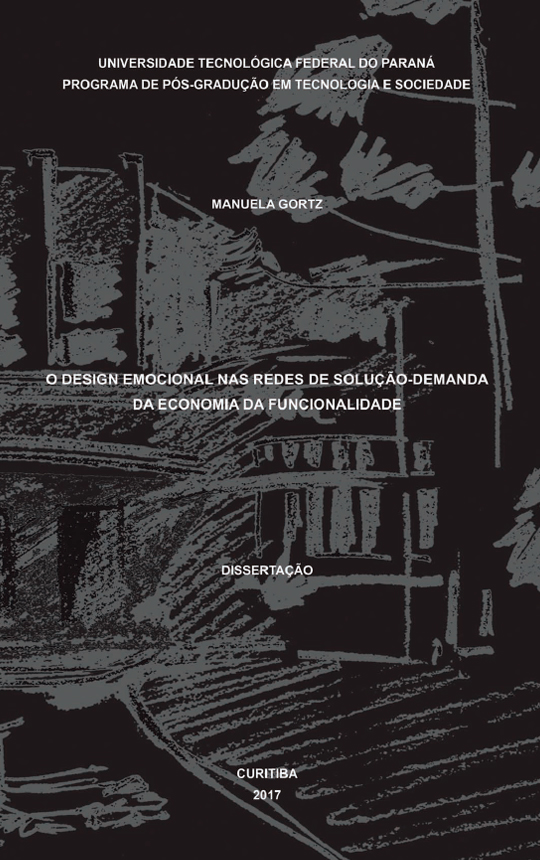
Emotional design in the solution-demand networks of the functional economy
Year: 2017
Dissertation advisor: Décio Estevão do Nascimento
Co-advisor: Frederic Huet
University: UTFPR
*Available in Portuguese (BR)
*Available in Portuguese (BR)
Abstract
This dissertation has as its central theme the Emotional Design in the solution-demand networks of the Functional Economy. Its main goal is to characterize the contribution of the Emotional Design in the solution-demand networks of the Functional Economy.
This study is justified in the theoretical field, as a breakthrough in the research of the subject matter, by identifying a gap to be studied and by the originality of the combination and the joint approach of these three concepts. It is also justified in the practical field, for the potential to contribute not only to designers but also to involve other stakeholders, when opening new opportunities for partnerships and enabling an expansion of the network of actors involved in new models of Functional Economy.
The study is exploratory and descriptive as to its purpose. Bibliometric research and systemic analysis were used for the survey and definition of the theoretical reference. For the collection and analysis of secondary data, the content analysis method was used, developing a categorical and thematic analysis, characterizing it as well as a qualitative research.
The practical case of Autolib, a carsharing system of electric vehicles originating in France, was used as a study object for applying the analysis of the contributions of Emotional Design.
The results show that the contributions of Emotional Design in the solution-demand networks of the Functional Economy are of four distinct natures:
- Product Design Strategies (visceral, behavioral, and reflexive levels);
- Emotional, psychological and cognitive aspects;
- Experiences;
- User-centered design.
How to cite?
GORTZ, Manuela. Emotional design in the solution-demand networks of the functional economy. 2017. 228 f. Dissertation (Master in Technology and Society) – Postgraduate Program in Technology and Society, Federal Technological University of Paraná, Curitiba-Brazil, 2017.
Also Available in:
Repository of the Federal Technological University of Paraná.
